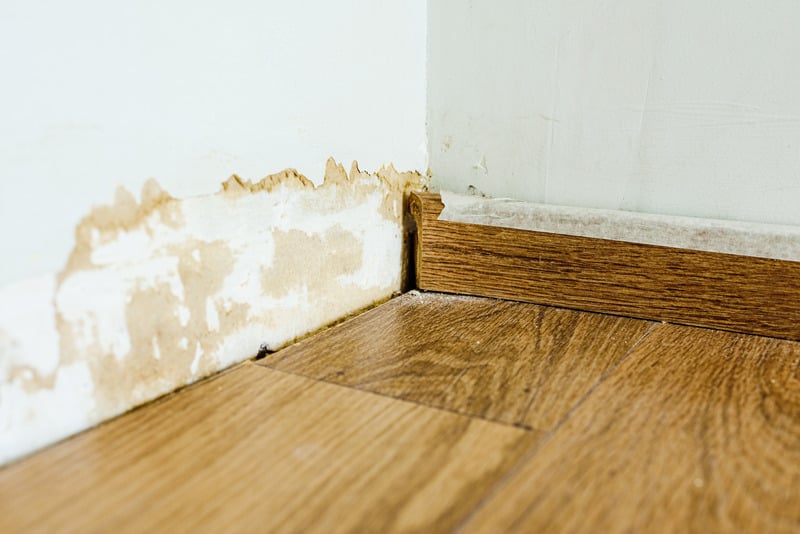
Water damage is one of the most common and costly issues homeowners face. Whether it’s a minor leak or a major flood, water damage can lead to significant repair costs and long-term damage to your property. Fortunately, there are several proactive steps you can take to prevent water damage and keep your home safe and dry
Here are some essential water damage prevention tips to help you protect your home from plumbing leaks and stop water damage before it starts.
1. Regularly Inspect and Maintain Plumbing
One of the most effective ways to prevent water damage is to regularly inspect and maintain your plumbing system. Check for signs of leaks, such as damp spots on walls or ceilings, and ensure that your pipes are in good condition. Look for any corrosion or wear and tear, especially on older pipes. If you notice any issues, it’s crucial to address them promptly to avoid more severe problems. For professional help with plumbing maintenance and inspections, you can rely on Towers Plumbing's services.
2. Install Leak Detection Devices
Leak detection devices can provide an early warning if a leak occurs. These devices are designed to alert you to the presence of water where it shouldn’t be, allowing you to take action before significant damage occurs. Place leak detectors near appliances such as washing machines, dishwashers, and water heaters, as well as in areas prone to leaks. Some advanced systems can even connect to your smartphone, providing real-time alerts and remote monitoring.
3. Maintain Your Roof and Gutters
Your roof and gutters play a crucial role in directing water away from your home. Regularly inspect your roof for damaged or missing shingles and make repairs as needed. Clean your gutters and downspouts to ensure they are free of debris and functioning correctly. Proper roof and gutter maintenance helps prevent water from pooling around your home’s foundation, which can lead to leaks and water damage.
4. Properly Insulate Pipes
Pipe insulation is essential in preventing frozen pipes, which can burst and cause significant water damage. In colder climates, ensure that all exposed pipes are properly insulated. Insulation helps maintain the temperature of the water in the pipes and prevents it from freezing during cold weather. If you’re unsure how to insulate your pipes or need assistance, Towers Plumbing can provide expert advice and services.
5. Ensure Proper Drainage Around Your Home
Proper drainage is vital to prevent water from accumulating around your home’s foundation. Make sure that the ground slopes away from your home to direct water away from the foundation. Install or maintain drainage systems such as French drains or sump pumps to manage excess water. Keeping the area around your home dry helps prevent water from seeping into the foundation and causing damage.
6. Check and Maintain Appliances
Regularly inspect household appliances that use water, such as washing machines, dishwashers, and refrigerators with ice makers. Ensure that hoses and connections are secure and replace any worn or damaged parts. A small leak from an appliance can quickly escalate into a significant problem if not addressed promptly.
7. Monitor Humidity Levels
High humidity levels can contribute to water damage by promoting mold growth and causing condensation issues. Use a dehumidifier to control indoor humidity levels, especially in areas prone to moisture, such as basements. Regularly check for signs of mold and address any issues immediately to prevent further damage.
8. Know the Location of Your Shut-Off Valves
In the event of a major leak or plumbing emergency, knowing the location of your home’s main water shut-off valve can save valuable time and prevent extensive damage. Make sure all household members are aware of where the shut-off valve is located and how to operate it. In case of a significant leak, shutting off the water supply promptly can help minimize damage.
9. Regularly Review Your Home Insurance
Having adequate home insurance coverage is crucial for protecting your property from water damage. Review your insurance policy to ensure it covers water damage and related issues. If you’re unsure about your coverage or need assistance, contact your insurance provider for a detailed review.
Preventing water damage requires a combination of regular maintenance, proactive measures, and awareness of potential risks. By following these water damage prevention tips, you can significantly reduce the likelihood of water damage and protect your home from plumbing leaks.
For more information or professional assistance with maintaining your plumbing system, contact Towers Plumbing. Taking these steps now can save you time, money, and stress in the future, keeping your home safe and dry.
